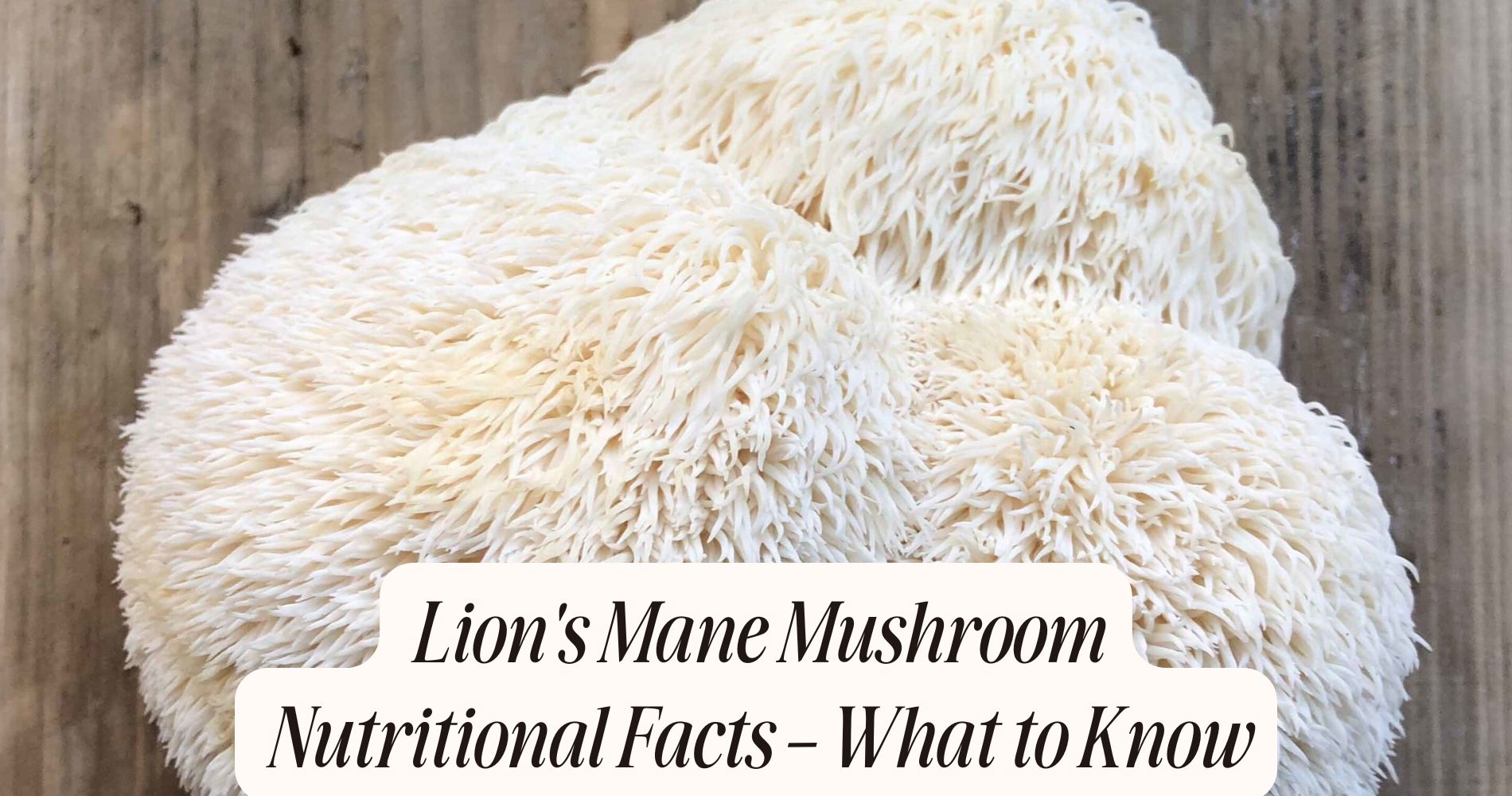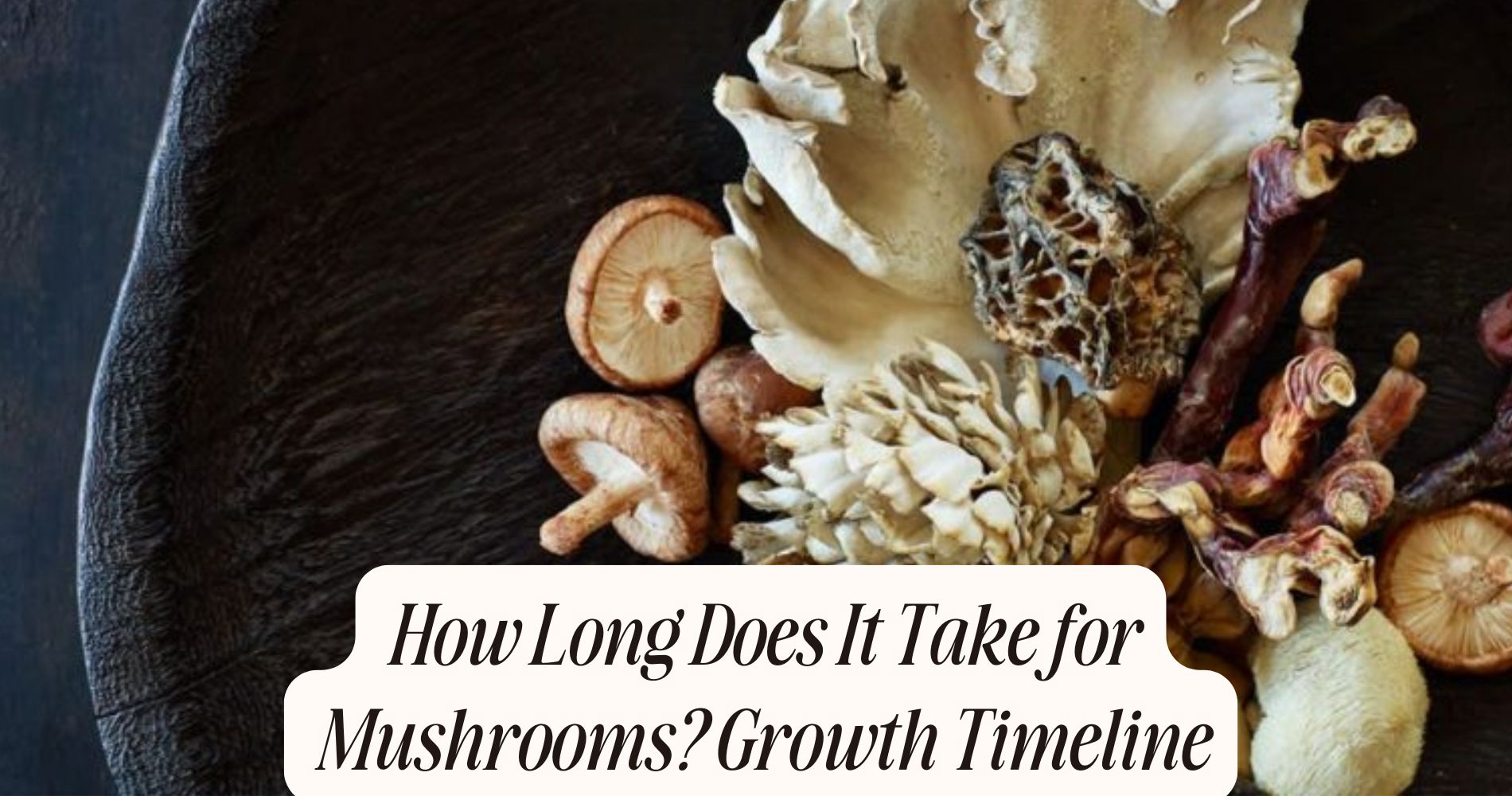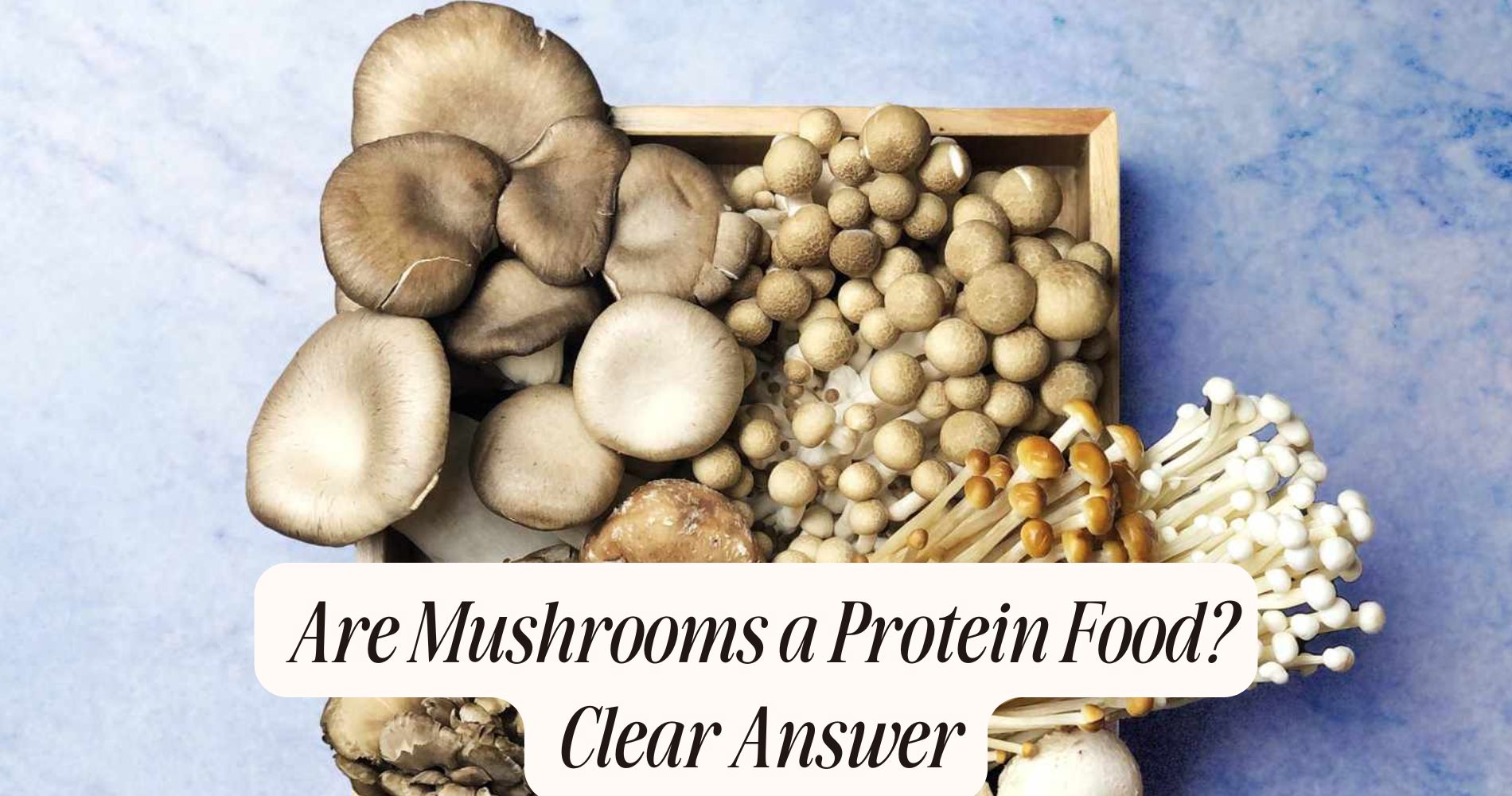
Lion's Mane Mushroom Nutritional Facts – What to Know
When exploring lion's mane mushroom nutritional facts, you'll find it's a powerhouse of wellness. This brain-boosting fungi is low in calories yet rich in dietary fiber, moderate protein, and essential nutrients like B vitamins, potassium, and zinc. What truly sets it apart are its unique bioactive compounds—hericenones, erinacines, and beta-glucans—known to support cognitive function, nerve regeneration, and immune health. Its antioxidant content further protects against oxidative stress, making it a smart addition to any balanced diet. Ready to learn how to incorporate it into your meals? Keep reading.
Macronutrient Profile of Lion's Mane Mushrooms
One key aspect of Lion’s Mane mushrooms is their balanced macronutrient profile. When you examine their composition, you’ll notice they’re low in fat and calories, making them a suitable option for calorie-conscious diets.
Protein content is moderate, supporting muscle maintenance without excessive intake. A significant feature is their fiber content, which aids in digestive health and promotes a feeling of fullness.
Looking at their carbohydrate breakdown, you’ll find that most of the carbs come from dietary fiber and complex carbohydrates, rather than simple sugars. This means you won’t experience rapid blood sugar spikes when consuming Lion’s Mane.

Vitamins and Minerals Found in Lion's Mane
Lion’s Mane mushrooms deliver a diverse array of essential vitamins and minerals that contribute to overall health. You’ll find notable amounts of B vitamins—such as thiamine, riboflavin, and niacin—which play a vital role in energy metabolism and nervous system support.
Lion’s Mane also provides minerals like potassium, zinc, and iron, important for heart function, immune response, and oxygen transport. These nutrients make Lion’s Mane valuable not only for its medicinal uses but also for its culinary applications, offering a nutritious addition to a balanced diet.
Scientific analyses confirm that including Lion’s Mane in your meals can help meet daily micronutrient needs. Whether you’re using it for its potential health benefits or as a flavorful ingredient, its nutritional content supports various wellness goals.
Unique Bioactive Compounds in Lion’s Mane
Although many mushrooms offer health benefits, what sets Lion’s Mane apart is its rich content of unique bioactive compounds. When you consume Lion’s Mane, you’re introducing your body to specific neuroprotective compounds, such as hericenones and erinacines.
Scientific studies suggest these compounds may stimulate the production of nerve growth factor (NGF), which plays a vital role in maintaining healthy brain cells.

In addition, Lion’s Mane contains complex polysaccharide structures, particularly beta-glucans. These have been shown to support immune function and may contribute to overall wellness.
Antioxidant Properties and Their Benefits
Because Lion’s Mane mushroom contains a variety of potent antioxidants, it plays a key role in combating oxidative stress within your body. These antioxidants work through several antioxidant mechanisms, such as neutralizing free radicals and enhancing your body’s own defense systems.
Research demonstrates that Lion’s Mane can effectively support oxidative stress reduction, which is essential for maintaining cellular health and protecting tissues from damage. By reducing oxidative stress, you may help lower your risk of chronic conditions related to inflammation and cellular degeneration.
The antioxidant content in Lion’s Mane includes compounds like polysaccharides and phenols, which have been shown to exhibit significant free radical scavenging activity. Including Lion’s Mane in your diet provides a natural way to boost your body’s resilience against everyday environmental and metabolic stressors.
Potential Cognitive and Nervous System Support
While many people seek out Lion’s Mane for its antioxidant properties, research also highlights its potential to support cognitive function and nervous system health. Scientific studies indicate that compounds in Lion’s Mane may stimulate the production of nerve growth factor (NGF), a protein critical for neuroplasticity enhancement and nerve regeneration.

By promoting NGF synthesis, Lion’s Mane could help your brain adapt and form new neural connections, potentially improving memory and learning. Animal and in vitro research suggests that Lion’s Mane extract may accelerate recovery from nerve injuries and protect against neurodegenerative processes.
However, while early evidence is promising, more robust human studies are needed to confirm these effects. If you’re interested in supporting your brain’s resilience, Lion’s Mane offers a compelling, evidence-based option.
Immune System Benefits of Lion’s Mane
If you're looking to bolster your body's defenses, Lion’s Mane may offer notable immune system benefits supported by emerging research. Studies indicate that Lion’s Mane contains bioactive compounds, such as beta-glucans, which can modulate immune responses and stimulate the activity of certain white blood cells.
These effects suggest Lion’s Mane could help your body respond more effectively to pathogens. Traditional uses of this mushroom in Eastern medicine often focused on supporting overall vitality and resilience, with immune health being a key component.
Today, Lion’s Mane finds its place not only in supplements but also in culinary applications, allowing you to enjoy both flavor and potential health benefits. While promising, more human research is needed to fully understand its immune-supporting properties.
How to Incorporate Lion’S Mane Into Your Diet
Adding Lion’s Mane to your meals is a practical way to benefit from its potential immune-supporting properties. You can easily incorporate this versatile mushroom into your diet using various cooking methods.
Sautéing is popular—simply slice and cook Lion’s Mane with a small amount of oil until golden. Roasting or grilling enhances its natural umami flavor and meaty texture.
For a simple recipe idea, try adding chopped Lion’s Mane to soups, stir-fries, or omelets. You can also blend it into smoothies or teas if you prefer a milder taste.
Dried Lion’s Mane works well in broths and stews.
Smart Supplement, Smarter Living
If you're excited about the nutritional power of lion's mane, why not enjoy it in the easiest way possible? With SUPER MUSHROOM GUMMIES by Well Gummies, you get the brain-boosting benefits of lion’s mane—plus nine other functional mushrooms—all in a tasty, chewable format. Each vegan gummy is designed to support cognitive clarity, sustained energy, and immune balance without the crash. With a wild berry flavor that tastes like candy, it's wellness made delicious—perfect for busy minds and bodies.
Frequently Asked Questions
Is Lion's Mane Safe for Children and Pregnant Women?
You should consult your healthcare provider before giving Lion's Mane to children or using it during pregnancy. There's limited research on child safety and pregnancy considerations, so it's best to prioritize established guidelines and professional advice.
Can Lion's Mane Interact With Medications?
You should consider possible drug interactions and medication safety when using lion's mane. Evidence suggests it might affect blood clotting or diabetes medications. Always consult your healthcare provider before combining lion's mane with any prescription or over-the-counter drugs.
Are There Any Known Side Effects of Consuming Lion's Mane?
You might experience possible allergic reactions, such as skin rashes or itching, after consuming lion's mane. Some people report mild gastrointestinal issues, including upset stomach or nausea. Most evidence shows side effects are rare and typically mild.
How Should Lion's Mane Be Stored to Maintain Freshness?
To maintain freshness, you should use refrigeration methods by storing lion's mane mushrooms in a paper bag in the fridge. Avoid airtight containers. For short-term, dry storage works, but refrigeration methods considerably extend shelf life, according to studies.
Is Lion's Mane Mushroom Suitable for People With Mushroom Allergies?
If you have a mushroom allergy, you shouldn't eat lion's mane mushroom. Allergy risks exist because your immune response could react to proteins found in lion's mane, just like with other mushrooms. Consult your doctor first.
Conclusion
Incorporating lion’s mane mushrooms into your diet gives you a boost of fiber, protein, and B vitamins, along with key minerals like potassium and zinc. You’ll also benefit from unique bioactive compounds that support your immune and nervous systems. Studies suggest their antioxidants may help protect your body and mind. By adding lion’s mane to meals, you’re choosing a nutrient-rich food that science shows can support your overall health in multiple ways.




